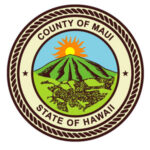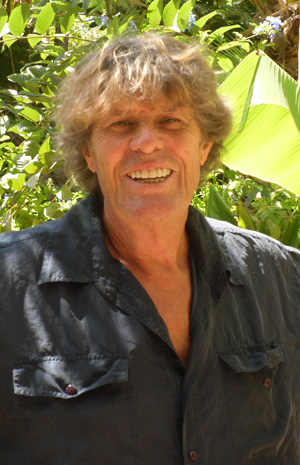
Jul 13, 2011 | Environment, Sustainability
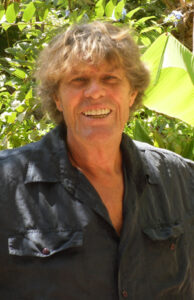 Tucked away in the hot, arid hills above Kihei is a model organic oasis which Nick Oosterveen and his wife Diane have been cultivating since 1987 called Kaimanu Botanical Garden. With generations of agriculture knowledge passed down through his family and a passionate interest in permaculture, Oosterveen has perfected a self-contained ecosystem that epitomizes a “zero-waste” philosophy. Not only does his sustainable farm boast a fertile collection of many exotic vegetables, herbs, fruit, and flowering plants and trees—creating what Oosterveen calls a “food forest”—but it also contains an aquaponics system, in which he raises tilapia and plants together in one integrated, soilless system that utilizes a fraction of the water it usually takes to grow the same crops. And being vegetarians, the Oosterveens eat as much as possible from their own land. “The only food I buy from the grocery store is dairy products,” he declared.
Tucked away in the hot, arid hills above Kihei is a model organic oasis which Nick Oosterveen and his wife Diane have been cultivating since 1987 called Kaimanu Botanical Garden. With generations of agriculture knowledge passed down through his family and a passionate interest in permaculture, Oosterveen has perfected a self-contained ecosystem that epitomizes a “zero-waste” philosophy. Not only does his sustainable farm boast a fertile collection of many exotic vegetables, herbs, fruit, and flowering plants and trees—creating what Oosterveen calls a “food forest”—but it also contains an aquaponics system, in which he raises tilapia and plants together in one integrated, soilless system that utilizes a fraction of the water it usually takes to grow the same crops. And being vegetarians, the Oosterveens eat as much as possible from their own land. “The only food I buy from the grocery store is dairy products,” he declared.
Nick Oosterveen is originally from Holland, but moved to Hawaii nearly 30 years ago after a long career in the music industry in Los Angeles. Since then, he has been whole-heartedly committed to the education, promotion, and development of sustainable living through the sharing of information and creating self-sufficient ecosystems. Oosterveen volunteers to teach Maui students and residents about growing their own food which will help decrease the island’s dependence on imports. “Sustainable food production is going to be one of the key issues this island will face in the future, and with this approach, you can raise a lot of food even in very little space,” adds Oosterveen.
Oosterveen welcomes visitors to learn through hands-on workshops every second Saturday of the month. Topics include: Sustainable Living, Permaculture, Food Forests, Aquaponics, Healing Foods, and more. He offers student tours and classes to any Maui School wanting to participate. For reservations or to schedule private educational tours, send an email to nikodesigns@hawaii.rr.com, or call (808) 250-5113.
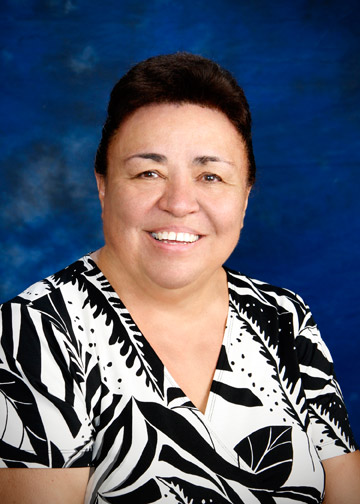
Jul 7, 2011 | Community
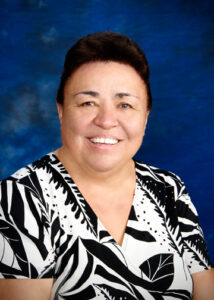 Continuing our series on newly appointed County Department Directors, reflecting the role of government in responding to community values and needs.
Continuing our series on newly appointed County Department Directors, reflecting the role of government in responding to community values and needs.
The Maui County Department of Housing and Human Concerns provides island residents with assistance in all stages of their lives, says Director Jo-Ann Ridao. “I often refer to my department’s operations as being from the womb to the tomb,” she said. That’s because the department has seven divisions, covering housing, early childhood, immigration services, grants management, the county’s Volunteer Center, Kaunoa Senior Center and the Office on Aging. “My philosophy is to address the needs of a broad range of our community members. An important aspect of my role is to mentor my division heads and facilitate the great work they do,” Ridao said. “I’m the kind of person who enjoys being a mentor.” For Ridao, her department’s priorities are to address the community’s needs for food, shelter and safety.
As budget constraints and limited funding resources present an increasing challenge, the government will need to develop more partnerships and new ways to address human needs, says Ridao. Part of the solution, she believes, is engaging all segments of the Maui Nui community — from unions to churches to businesses — to support the mission of Housing and Human Concerns. “We need to build even further on our tradition of aloha, caring for each other in our community, and volunteerism.” Continuing to provide affordable housing is another community priority close to Ridao’s heart.
A former director for Lokahi Pacific, an independent, private non-profit housing and community development organization based in Wailuku, Ridao has extensive experience in addressing human needs and concerns, and among her accomplishments is selection as a participant in nonprofit management program at Harvard University in Cambridge, Mass. She was born at the Maluhia Hospital in Wailuku and graduated from St. Anthony High School. The rewards of her job are plentiful, she said. “To see immigrants relieved because their paperwork is in good shape seniors getting the support they need and the new first-time homebuyer who moves in to their their home, all of that is wonderful to see.”
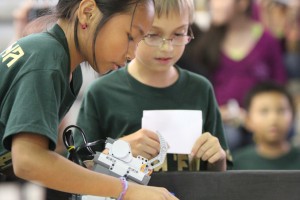
Jun 29, 2011 | Education

Maui students compete in the First Lego League VEX competition
Our children today are more sophisticated at younger ages. They are using advanced technology in their classrooms and are setting directions for themselves even before they enter middle school. To keep up with this trend, building skills in STEM needs to begin at an earlier age.
A recent study by an MIT Aerospace Engineering assistant professor, Dr. Annlisa Weigel, reinforces that point. Weigel’s report, “Survey of Aerospace Student Attitudes,” analyzes causes of a shortage of aerospace engineers.
One element stands out: two-thirds of the engineering students reported they became interested in their career choice before they were teenagers. Weigel found 35 % of the students developed an interest in aerospace engineering when they were 5 to 9 years old; 27% at 10 to 13.
Her study focused on aerospace engineers. But her findings on recruiting students validate the significance of programs that introduce students to STEM at an early age, such as the FIRST LEGO League Robotics programs for students beginning in kindergarten through 3rd grade. Half of the 10 Ke Alahele grants awarded to Maui Robotics programs in 2010-11 were to elementary and intermediate school LEGO League teams.
The MEDB Ke Alahele Education Fund is just one of multiple MEDB programs that work to nurture STEM skills in our students. Whether that foundation inspires a student to create the next IPad app for telemedicine, to become the best EV mechanic on Maui, to improve water resources or to grow our own food cost effectively, a STEM education broadens the life-long options for our children.
Fund The Journey
 Help to empower Maui County’s youth by joining us for “A Pathway to Our Future” benefit dinner and auction which supports the MEDB Ke Alahele Education Fund.
Help to empower Maui County’s youth by joining us for “A Pathway to Our Future” benefit dinner and auction which supports the MEDB Ke Alahele Education Fund.
Held at the Grand Wailea Resort Hotel & Spa on Saturday, August 27th, the event will headline Distinguished Educators U.S. Senator Daniel K. Inouye, his wife Ms. Irene Hirano and Mayor Alan Arakawa and his wife Ann. The Reception will begin at 4:30 pm with hand-on activities for guests and a silent auction; followed by dinner and a live auction at 6:30 pm.
Sponsorships are available and event tickets are $150 per person. For reservations or for more information, contact Maui Economic Development Board, Inc. at 808-875-2300 or visit www.medb.org.
Grantees Progress Report
Fund recipients have been working hard on various STEM-related programs. Here’s a look at their progress.

4-H Dirt Devils
The 4-H Dirt Devils scored big during the 60th annual National Land and Range Judging Contest in Oklahoma City. Members tested their individual and team skills against teams from 38 states evaluating land characteristics (topsoil, subsoil slope and plant life). Team member Tyler Yamada was named National Champion in the Homesite Evaluation, Individual category. In Land Judging 4-H competition, the 4-H Dirt Devils team of Ashley Malek, Devin Vinoray, Jared Shimada and Taylor Hori placed fourth. Ashley Malek placed 8th in the individual category.

4th grade class at Kula Elementary
This past semester, students in Mrs. Gordon’s 4th grade class at Kula Elementary learned how to properly care for their new microscopes, and also worked on identifying and comparing animal cells and plant cells, and identifying protozoa: ameba, paramecium, and euglena.
During the 2nd Annual Maui District Arts and Communication Performance Based Assessment on April 28-29 at UH Maui College, 12 Teams from Baldwin High, Hana High, King Kekaulike High, Maui High, Maui Waena Intermediate and Molokai High competed to create an advertising campaign for a program at UHMC. A five student team from Maui High took first place honors. The winning team included Ryan Bartolome, Kaizzer Fernandez, Eli-Ana Dickson, Aaron Lopez and Regina Prudenciano.
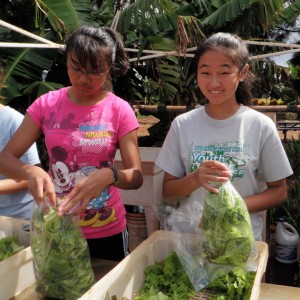
Jun 29, 2011 | Community

Armed with a sense of adventure, students from the Focus Maui Nui Youth Alliance mixed fun and education on Lāna‘i as part of their 2010-2011 capstone event. Alberta de Jetley of the Coalition for a Drug Free Lāna‘i “played” tour guide, using her nonprofit’s van to give the 10 participating teenagers a taste of her home island. They explored the Lāna‘i Culture and Heritage Center, visited with Lāna‘i business owners, planted kombucha and watermelon at Bennie’s Farm, and volunteered at The Cat’s Meow, a thrift shop that raises money to benefit the feral cat sanctuary, which de Jetley helped to establish.
“Any kind of program in which we can show the youth their future possibilities, I’m glad to help,” de Jetley said. “We might possibly be the catalyst or spark plug that leads them to their future endeavors.” The students also enjoyed swimming, hiking and a barbecue at a Lāna‘i campground where the island’s aloha spirit came alive when several residents stopped by to offer the youth some treats. “It was so much fun,” said Willow Krause, who just completed her first year as coordinator of the Youth Alliance. “It really did feel like a culminating activity in which there was a lot of learning and bonding with the kids.”
A 1998 Baldwin High School graduate, Krause said she was impressed with this school year’s Youth Alliance students. “They’re just so much more focused than I was at their age. They have plans for college, ideas on what’s next in their future and even what professions they want to learn about.” Krause said the students show a lot of openness toward new things, even on Lāna‘i where for some of them it was a first-time visit. “They’re just ready to jump in and learn new things.” All together, nearly 40 students in grades 9 to 12, including one home-schooled youth, participated in this year’s Youth Alliance activities. Recruiting for next school year begins in August. For more information, contact Krause at willow[at]medb[dot]org.
Jun 22, 2011 | Environment, Sustainability

Derrick Sonoda of Hawaii Energy
Qualifying nonprofits and small businesses can help save the environment, and save money too, by acting fast to accept a free offer by enrolling in a new energy initiative. The first shipment of energy-saving LED lamps gets distributed this week to participants in the Lighting the Future program. The program, coordinated by Hawaii Energy, aims to raise awareness for the need to reduce dependence on imported oil, keeping money in our economy and conserving our resources. Lighting is the second-largest energy expense for most Hawaii small businesses—the largest is air conditioning, according to Hawaii Energy Director of Operations Derrick Sonoda.
For lighting, Hawaii Energy and its partner, Toshiba, are offering LED lamps at no cost to qualified small businesses and nonprofit organizations. Participants agree to install the new lighting technology prior to June 30. More than 200 entities across the state have taken up the offer. “It’s tremendous,” Sonoda says of the response so far. Qualified businesses and nonprofits should go to www.hawaiienergy.com for more information.
Each LED lamp provides an estimated 30,000 hours of light compared to 2,000 hours for a conventional incandescent light bulb. A LED lamp lasts between six and seven years before it needs to be replaced. Qualified businesses and nonprofits can ask for as many LED lamps as they need to install. “If you can screw in a light bulb, you can get energy savings,” Sonoda said. He said energy costs affect prices of all kinds of goods, including one of Hawaii’s favorite indulgences. “Everything is so dependent in the state on oil, even the price of Spam musubi is affected.”
Also supporting this energy-saving initiative are Hawaii Energy’s distribution partners, who have agreed to provide assistance in getting the LED lamps to the participating businesses and nonprofits. The Maui Economic Development Board is one of many that have agreed to serve as a distribution center for the LED lamps. Sonoda said community support is crucial to Lighting the Future’s success. “If we don’t tackle this as a community, it will kill us… we really need to be less tied to oil.”

 Tucked away in the hot, arid hills above Kihei is a model organic oasis which Nick Oosterveen and his wife Diane have been cultivating since 1987 called Kaimanu Botanical Garden. With generations of agriculture knowledge passed down through his family and a passionate interest in permaculture, Oosterveen has perfected a self-contained ecosystem that epitomizes a “zero-waste” philosophy. Not only does his sustainable farm boast a fertile collection of many exotic vegetables, herbs, fruit, and flowering plants and trees—creating what Oosterveen calls a “food forest”—but it also contains an aquaponics system, in which he raises tilapia and plants together in one integrated, soilless system that utilizes a fraction of the water it usually takes to grow the same crops. And being vegetarians, the Oosterveens eat as much as possible from their own land. “The only food I buy from the grocery store is dairy products,” he declared.
Tucked away in the hot, arid hills above Kihei is a model organic oasis which Nick Oosterveen and his wife Diane have been cultivating since 1987 called Kaimanu Botanical Garden. With generations of agriculture knowledge passed down through his family and a passionate interest in permaculture, Oosterveen has perfected a self-contained ecosystem that epitomizes a “zero-waste” philosophy. Not only does his sustainable farm boast a fertile collection of many exotic vegetables, herbs, fruit, and flowering plants and trees—creating what Oosterveen calls a “food forest”—but it also contains an aquaponics system, in which he raises tilapia and plants together in one integrated, soilless system that utilizes a fraction of the water it usually takes to grow the same crops. And being vegetarians, the Oosterveens eat as much as possible from their own land. “The only food I buy from the grocery store is dairy products,” he declared.


 Help to empower Maui County’s youth by joining us for “A Pathway to Our Future” benefit dinner and auction which supports the MEDB Ke Alahele Education Fund.
Help to empower Maui County’s youth by joining us for “A Pathway to Our Future” benefit dinner and auction which supports the MEDB Ke Alahele Education Fund.



